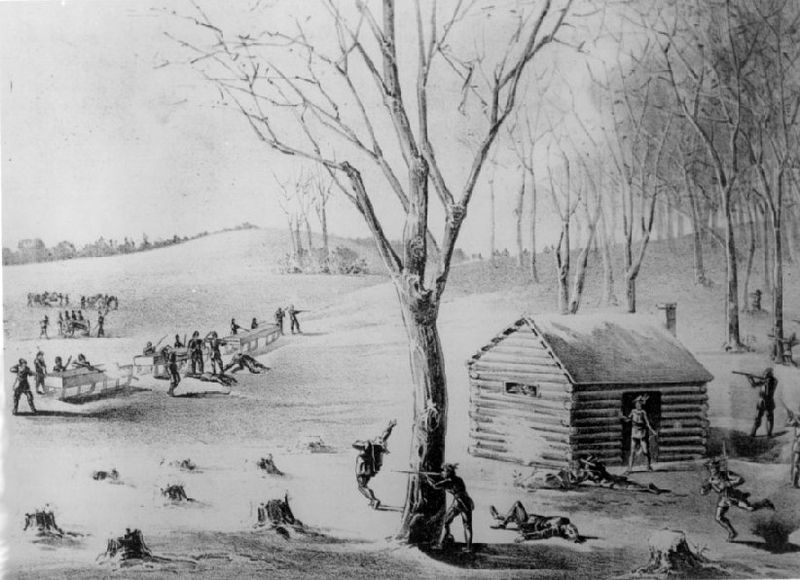Role during the North-West Rebellion
Originally from Yorkshire, Edward Braithwaite joined the North-West Mounted Police (NWMP) as a hospital Sergeant in 1884. Although he hadn’t finished his medical training, qualified physicians in the NWT were rare, and he was pressed into service as a “medical officer.”
His services were needed after the North-West Rebellion’s Battle of Duck Lake. He was sent to nearby Fort Carleton with a relief column and treated 22 men for snow blindness – using tea leaves. He brought back eight casualties by sleigh to Prince Albert for care and surgery.
After the Battle of Batoche, he witnessed Louis Riel’s surrender and was one of the people who escorted him to Regina. Braithwaite stayed in Regina during Riel’s trial and was present when Riel was hanged in November 1885.
He was fortunate to be given a break in his NWMP contract to finish his medical training at the College of Medicine in Winnipeg, where he received his MD in 1890. Braithwaite’s medical appointments to the NWMP (after 1910 the RCMP) lasted until 1931 — a record-breaking 47 years and eight months.
Life after the NWMP
Dr. Braithwaite entered private practice, provided NWMP medical care to Fort Saskatchewan, and was appointed Edmonton’s first Medical Officer of Health (1892-1907). A coroner for 50 years, he was the Chief Coroner for Alberta for 20 years and did over 8,000 autopsies and inquests.
In 1894, he and five colleagues petitioned Bishop Grandin to build the first hospital in Edmonton. Their efforts resulted in the Grey Nuns' Edmonton General Hospital, in 1895. He loved being first. His series of “firsts” included:
- First operation at the General and the City (later the Royal Alexandra) hospital in 1899.
- Delivering the first baby at the Misericordia in 1900.
- Admitting the first patient at the Misericordia in 1900 and the first patient at the Strathcona Cottage (later University) Hospital in 1906.
Braithwaite was a strong proponent of a Western Canadian Medical Federation. That initiative led to the formation of the Dominion Medical Council and the first national medical examinations (LMCCs) in 1912. Dr. Braithwaite also served as an inspector of hospitals from 1920-38 – a position that involved inspecting all hospitals approved for funding in the province.
Braithwaite Park southeast of the University of Alberta campus commemorates his memory.
